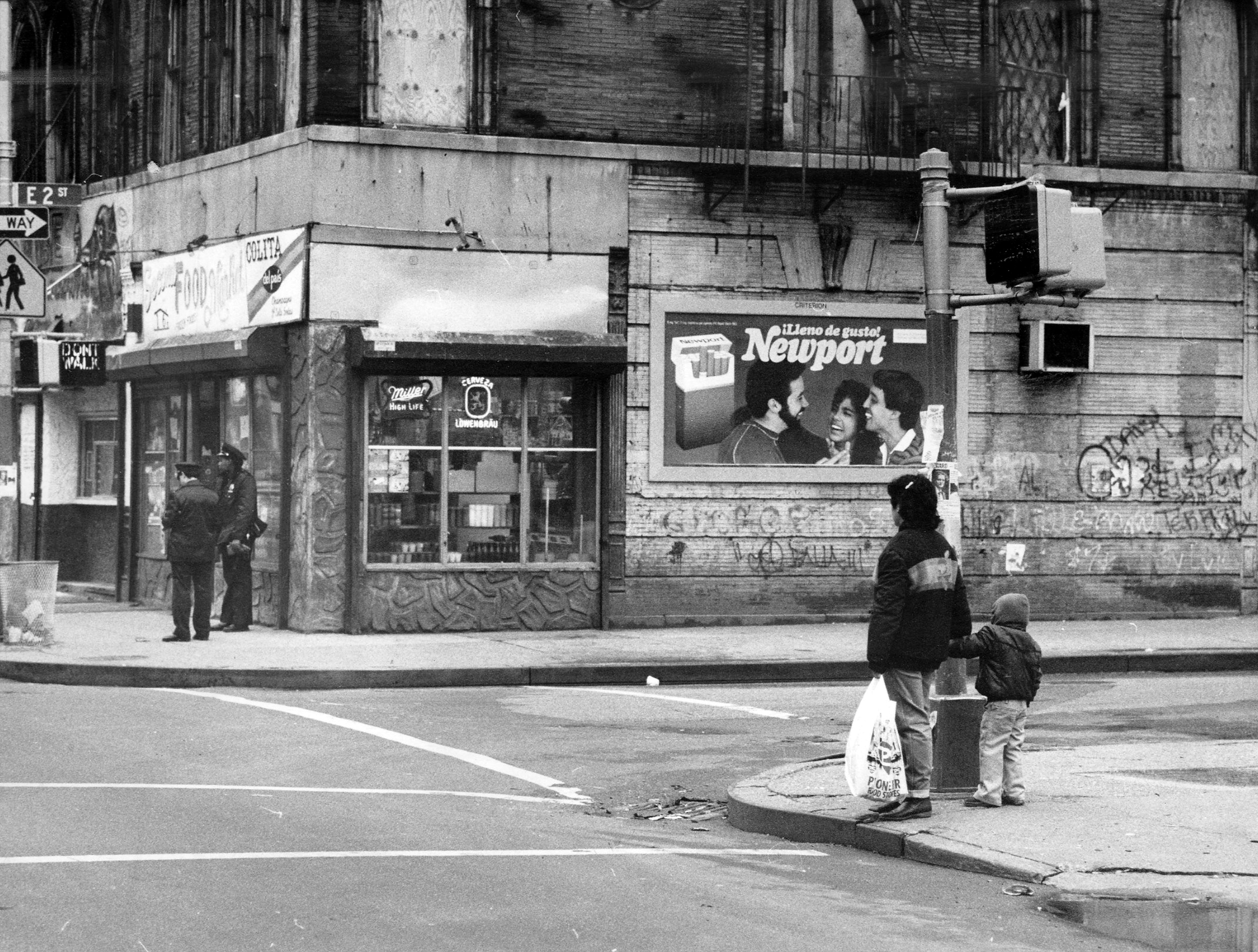Is there a German word for nostalgia for gnarly things? That’s what I kept feeling while I watched Marielle Heller’s Can You Ever Forgive Me? The sublime Manhattan-set dramedy stars Melissa McCarthy in a wry, wrenching turn as Lee Israel, celebrity biographer turned literary forger.
During the 1980’s, in her fifties, Israel had a short, sweet larcenous run manufacturing correspondence by the likes of Dorothy Parker and Noel Coward before the Feds arrested her. There it was in all its working-class glory: the dive bars, the dusty bookstores, the clacking of typewriters, the wintry mix falling on the garbage piled high on streets blissfully absent of the Gap and Starbucks.
Sigh: watching the movie my gaze often slipped to the image’s periphery. I miss the funky beauty of the city I knew and loved when I first arrived in the 1980s. I mourn the gritty, literate, impolite habitues like Israel who typically had her face shoved in a book (or a bourbon bottle) – and not a smart phone.
McCarthy’s Israel meets her best friend and partner in crime, Jack Hock (Richard E. Grant), on a snowy drunken afternoon at Julius’ pub. The West 10th Street watering hole at Waverly Place spitting distance from the Stonewall Inn has a reputation as Manhattan’s oldest gay bar. Clippings on its wall support its claim to have been a favorite booze hall of Tennessee Williams, Truman Capote and Rudolph Nureyev. By placing Israel in that setting, the film roots her as an insider outsider in the New York gay culture that made the city a homosexual mecca.
“Julius’ is one of those great old watering holes that time has forgotten,” said long-time film critic Dennis Dermody, of the Original Cinemaniac website. “It was one of the first bars anyone ever dragged me to when I came to New York and there was this great funky spirit to it (without attitude).”
Dermody continues: “What I loved about Can You Ever Forgive Me? is that’s the kind of characters you would be likely to find there during the day. They also had the best hamburgers too, and the bartenders were always pretty great, and had seen it all….It also appears in the beginning of The Boys in the Band, too, which gives it a nice dubious honor.”
Authenticity – that’s at the center of Heller’s movie. Like dive bars and the idea that books are sacred objects, independent bookstores have experienced a long slide. In 1981, there were still 249 bookstores according to Gothamist. Israel plods from one to the next, upscale and down; at first selling her used books for cash and then moving on up to the traders of literary ephemera to hawk her fallacious epistolary masterpieces. The city that had once boasted over 400 bookstores had seen them reduced to a mere 106 by 2015.
But my nostalgia for dive bars, dusty bookstores, the affordable rent-stabilized apartment like Israel’s fly-catcher of a one-bedroom, or even the great Chinese movie palaces near the Bowery, is nothing new. Even in the decadent 1980s, Israel was plagued by nostalgia for a previous world, that of the Algonquin Circle of witty drunks. (Dorothy Parker’s typed morning-after apology for alcohol-induced misbehavior inspired the title.)
I have a similar feeling of longing when I watch Martin Scorsese’s 1976 classic Taxi Driver – not for the drama of Robert DeNiro’s troubled Vietnam War veteran turned homicidal Travis Bickle but for the dirty beauty of the old Time Square with its porn theaters and high-booted prostitutes. Oh, the way his cab glides through the night streets by the crappy movie houses of 42nd Street now home to Disney musicals and Chili’s. Gone. No more.
Does every generation feel this way? Oh, Pompeii, it used to be so great.
Boom: there goes Tortilla Flats. Long gone is Greenwich Village literary watering hole the Lion’s Head where Norman Mailer, Frank McCourt and actor Ed Harris once congregated. Goodbye CBGB’s. Farewell to the chain bookstore on the corner of Sixth Avenue and Greenwich where I once hissed at a literary rival’s gloating oversized picture in the window.
Katz’s Delicatessen stands like a latter-day Parthenon in a student-overrun East Village that now boasts a Whole Foods on Houston Street. How convenient! That’s adjacent to Orchard Street, where I used to go seeking bargain underwear and inhale the air of my tenement-huddled ancestors. Only this year, I discovered my immigrant great grandfather died of Tuberculosis on those now-hip streets. Memory is selective. I wouldn’t want to turn time back that far!
Perhaps the German word I seek is partially expressed by verschlimmbessern, the urge to fix things that only screws them up more. Raze dive bars and raise rents to chase out the authentic eccentrics of New York? Sorry, Mrs. Parker, it’s unforgivable.
This article was featured in the InsideHook newsletter. Sign up now.
